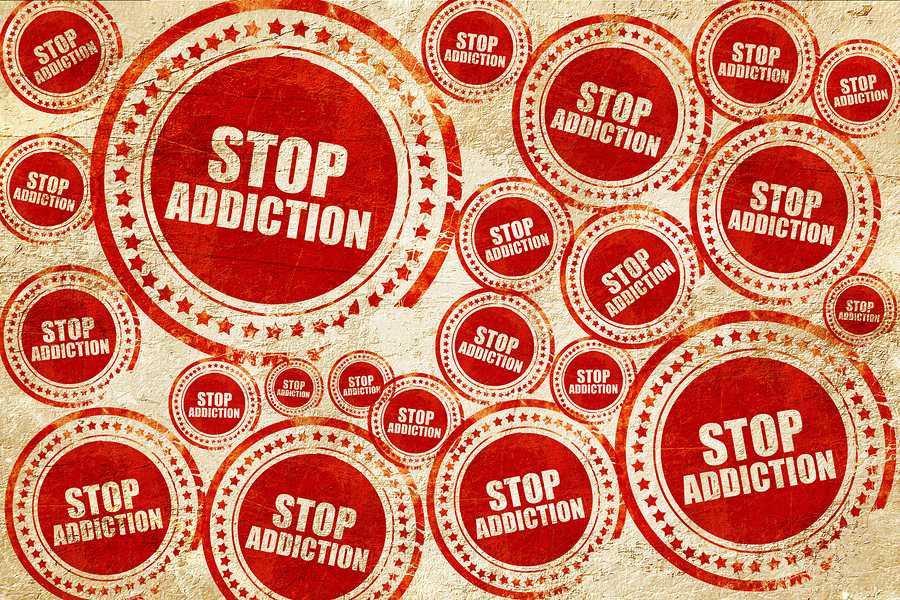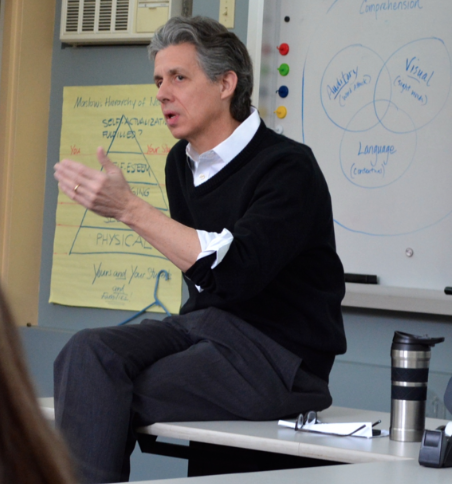
[soundcloud url=”https://api.soundcloud.com/tracks/306561709″ params=”color=ff5500&inverse=false&auto_play=false&show_user=true” width=”100%” height=”20″ iframe=”true” /]
Gator reporter Caiti Cullen ’19 recently sat down with Will Slotnick of Wellness Collaborative, an organization dedicated to promoting health and preventing addiction, who last week lead the 10th and 12th grades in a series of seminars.

Caiti: Why do you feel like it’s important for you to go to schools and talk about your experiences?
Will: Great question. As you know, my background was in architecture in college. When I finally graduated and got my degree in architecture, I decided to take a year off before graduate school to do service work. And then I saw an advertisement in the paper for an educator position—exclusively for people in recovery—who wanted to work in private schools around the world. I applied for the job. They hired me. And 27 years later I’m still doing the same thing—really out of gratitude for being one of the few who make it into recovery like I did.
Caiti: Do you wish you took a different route growing up?
Will: I do wish I could make some changes. That is, I wish I didn’t have to suffer as much as I did. I kept so much of my anxiety and my stress and my fear inside like a good little boy, a good soldier. I didn’t let anyone know how much I was struggling. I wish I had reached out to adults and made deeper connections and asked for help and support. It would have prevented a lot of pain and suffering in my life. I also regret that my behaviors affected other people. I think that’s the one thing…I got my life back. I got my mind back. I got my body back. The thing that I can’t undo is the pain and suffering I caused other people.
Caiti: What do think is most important for students to take away from your sessions?
Will: From the substance abuse prevention standpoint, it’s that early use is the greatest risk for later addiction. Most people who end up struggling with addiction start from the ages of 12 through 18. If I can help motivate you to make it through adolescence without using substances, then you’re going to be in good shape. That’s one part. The other part, really, is to understand that the motivating factor behind most substance abuse and most suffering in our culture is stress. If I can give you strategies and skills to help manage your stress, then you’re going to be healthier and happier and as a result, make better decisions.
Caiti: Do you think there is something missing or problematic in the way most adolescents are educated on substance abuse?
Will: I think there are many ways into this subject. I think sometimes straight fact based stuff really resonates with some kids. They’re looking to approach this intellectually. On the other hand, sometimes it is just interesting, charismatic presenters—telling a compelling life story—who really resonate with kids. I’m not a big scare tactic guy, but when you’re younger some of that scare tactic works really well. You can scare a little kid. Show them a picture of a diseased lung. It’s like, “If you smoke, this will happen to you.”
If I did that now, I don’t know if that would be as much of an impact. It certainly doesn’t work with people who are already smoking. You know what happens when you show them a diseased lung when they’re smokers? You know what they do? They smoke to get rid of the stress they have about a diseased lung. Oops. What I have found to be most effective is integrating these different approaches, focusing a little bit more on the why people do it rather than keep repeating, “Don’t do it.”
Particularly by the time you’re in high school, this is really your decision. You’re not going to do or not do something based on what I tell you to do. We don’t have that relationship and even if we did, I don’t know that that’s what would be the motivating factor. I think it’s giving you enough information and skills to assess your own risk and help you identify that it’s the emotional stuff that drives this, and then helping you work with the emotions. I think that’s the best approach.
Caiti: If you could give one piece of advice to high school students who are in a similar position as you were in, what would it be?
Will: One piece? That’s hard. Back to that original thing about regrets. Trust people. Reach out. Make connections with others. Know that everybody struggles. Everybody struggles. Everyone, particularly during adolescence, is struggling with something. Find people you trust to share that with so that you’re not alone with it. For the drug and alcohol piece, if you think you’re going to be a drinker at some point in your life—delay, delay, delay. Let yourself develop socially, emotionally. Let your brain develop a little bit more; not that you brain is defective. It’s just more impulsive right now and that allows drugs and alcohol could take a deeper hold.
So trust. Connect with others. And delay use as long as you can.





















































Ann OKeefe • Feb 13, 2017 at 1:46 pm
brilliant